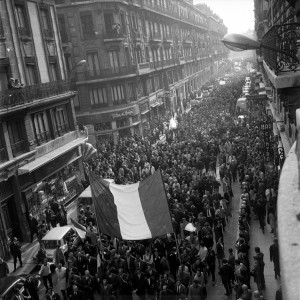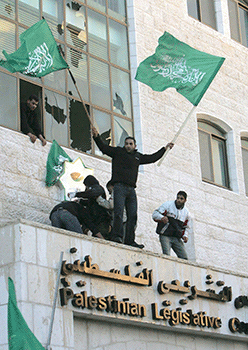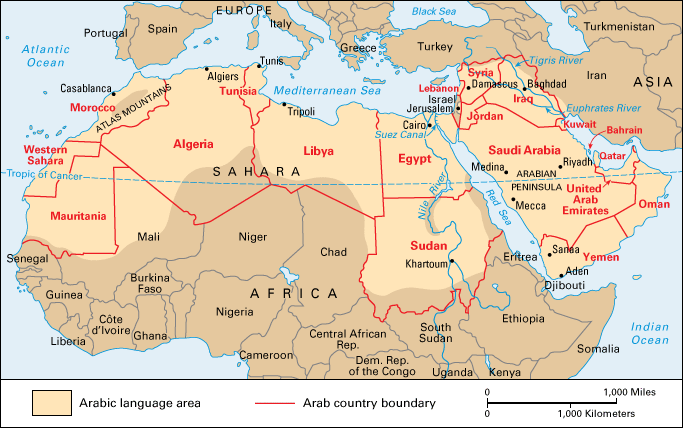France Riots of 1968
Wednesday, May 2nd, 2018May 2, 2018
Fifty years ago today, on May 2, 1968, the closure of a university in the French capital of Paris led to a month of violent protests, occupations, and strikes that shut down the country and nearly led to civil war. The unrest grew out of student grievances and poor wages, but it was part of a larger international cultural movement that rejected many of the customs and traditions of conservative society and government. The events of Mai 68 (May 68) temporarily crippled France’s economy and infrastructure and inspired a new generation of revolutionary spirit.

People march in support of President Charles de Gualle in Toulouse, France, on May 31, 1968. Credit: Toulouse Municipal Archives (licensed under CC BY-SA 4.0)
The late 1960′s were a turbulent time worldwide, and 1968 in particular was a difficult year. In the United States, the “hippie” counterculture was at its peak, racial tensions increased after the assassination of Martin Luther King, Jr., and there were daily protests against the increasingly bloody Vietnam War (1957-1975). In Czechoslovakia, a liberal reform movement known as the Prague Spring was taking place. Many people in France—university students in particular—were inspired to create their own cultural revolution and a more liberal and open society. Chief among student aims were an end to class and racial discrimination and the removal of French President Charles de Gaulle.
Student protests at the University of Paris Nanterre began in March 1968 and the school was shut down on May 2. Students at the Sorbonne in central Paris protested the suburban school’s closure. Police reacted harshly and the Sorbonne was closed as well. On May 6, thousands of students, teachers, and supporters confronted police at the Sorbonne. The police advanced on the protesters with billy clubs and tear gas, and the protesters eventually dispersed. Many people were hurt, and hundreds of people were arrested.
On May 10, some 40,000 protesters attempted to return to the Sorbonne, where they clashed with police blocking the streets. Protesters hurled paving stones, turned over cars, started fires, and erected barricades facing the lines of police. To clear the streets, police eventually charged the barricades, beating protesters and arresting hundreds more people. Much of the Latin Quarter, the neighborhood of the Sorbonne, was badly damaged. In France and elsewhere, people were shocked by the violence and the harsh police actions, and sympathy grew for the protesters.
On May 13, more than 1 million people marched in solidarity with the students in Paris. Prime Minister Georges Pompidou announced the release of arrested students and reopened the Sorbonne. The embattled students occupied the university, demanded changes, and protests continued. Many workers, with their own demands and grievances, followed the revolutionary spirit and occupied their factories. Before long, a general strike shut down French commerce and transportation, and the country ground to a halt. President de Gaulle, who had briefly fled the country, hinted at using the military to restore law and order. On May 30, de Gaulle dissolved the National Assembly and called for new elections in June. De Gaulle’s ruling Gaullist party rallied the president’s supporters and organized large counter-marches in many French cities.
By June, the protesters had won some changes in their universities and factories, and calm was gradually restored. As much as the protesters inspired sympathy, however, they also inspired antipathy among Gaullist supporters. Motivated conservative voters dominated the June elections, cementing de Gaulle in power—at least for a while—and things returned somewhat to normal. In April 1969, de Gaulle asked for constitutional reforms and said he would resign if the voters did not approve them. The French people voted against the reforms, and de Gaulle resigned.




